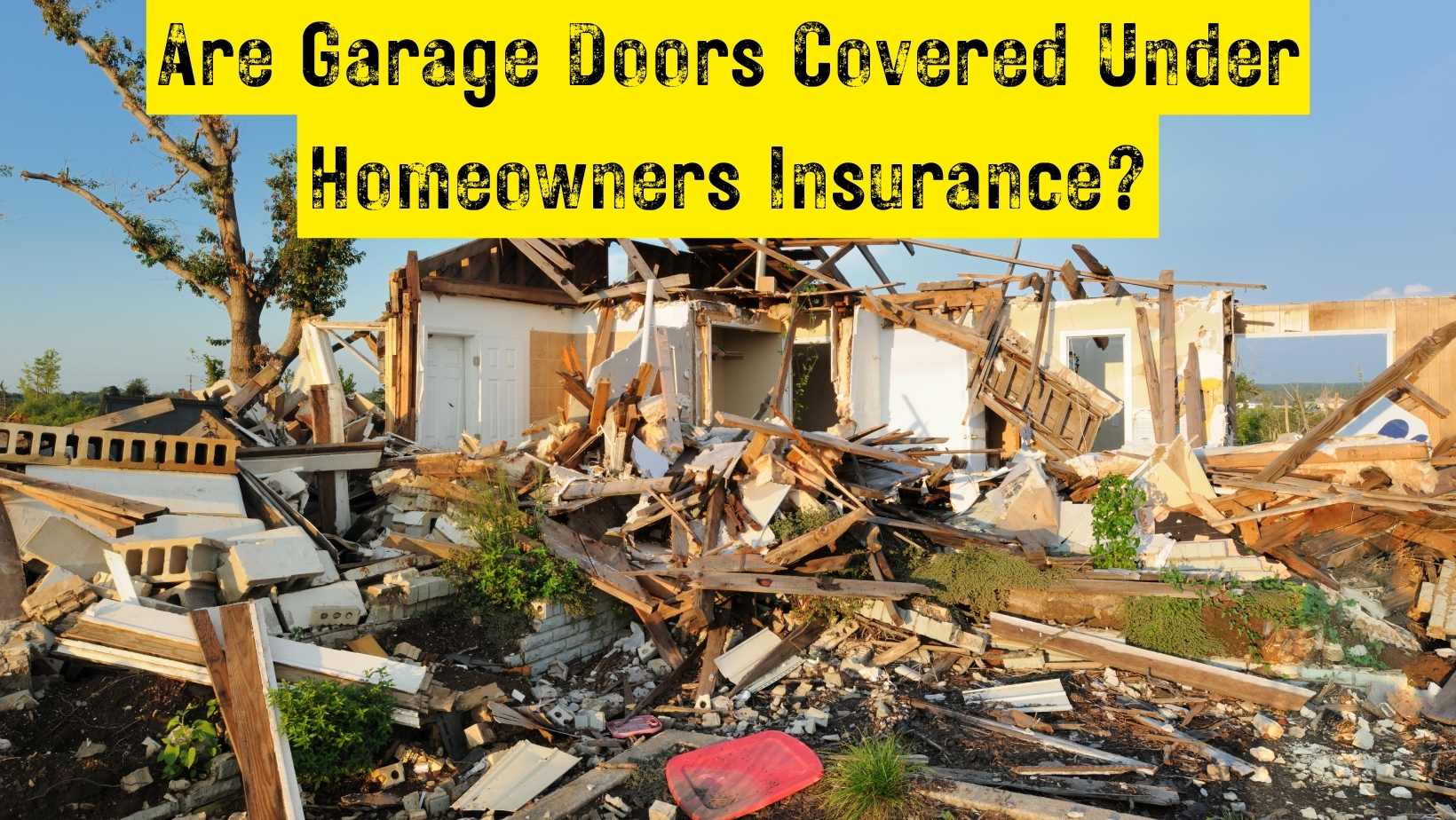When it comes to protecting your home, understanding the extent of coverage provided by your homeowners insurance is essential. One area of interest for many homeowners is their garage and, more specifically, their garage doors. In this article, we’ll address the common questions surrounding garage door coverage under homeowners insurance and explore the broader topic of what is typically excluded from such policies. Let’s dive in!
Are garage doors covered by homeowners insurance?
Yes, typically, homeowners insurance policies do cover garage doors. Since garage doors are considered an integral part of your home’s structure, they fall within the scope of coverage offered by most standard homeowners insurance policies. However, it’s important to review the specific terms and conditions of your policy to confirm the extent of coverage.
Does homeowners insurance cover garage door damage caused by your car?
In most cases, homeowners insurance policies do cover garage door damage caused by your car. If your vehicle accidentally collides with the garage door, causing significant damage, the repairs or replacement may be covered under the policy’s property damage coverage. However, it’s crucial to check the details of your policy and any deductibles that may apply.
Do Allstate insurance and State Farm cover garage doors?
Both Allstate and State Farm, two prominent insurance providers, generally cover garage doors under their homeowners insurance policies. However, coverage specifics can vary based on the policy type and individual terms. To ensure accurate information, it is advisable to consult your policy documents or contact your insurance provider directly to inquire about the coverage they offer for garage doors.
Does homeowners insurance cover garage door springs?
In most cases, homeowners insurance does not cover garage door springs. Insurance policies primarily focus on structural damage to your property caused by unforeseen events or perils, rather than normal wear and tear or mechanical failures. Garage door springs are typically considered a maintenance item and are not covered under homeowners insurance. However, some home warranty plans may offer coverage for garage door springs and other mechanical components.
Does the Homeowners Association (HOA) cover garage doors?
The coverage of garage doors under an HOA can vary depending on the specific HOA’s bylaws and regulations. In some cases, the responsibility for repairing or replacing garage doors may lie with the individual homeowner, while in others, it may fall under the jurisdiction and maintenance responsibility of the HOA. It is crucial to review your HOA agreement or consult with the association to determine the extent of coverage provided.
Common things not covered by homeowners insurance:
While homeowners insurance provides valuable protection, there are certain common exclusions to be aware of. Here are five items that are typically not covered by homeowners insurance:
1. Flood damage: Most standard homeowners insurance policies do not cover damage caused by floods. Separate flood insurance coverage is usually required.
2. Earthquakes: Earthquake damage is generally not covered by standard homeowners insurance policies. Specific earthquake insurance is necessary to obtain coverage.
3. Routine maintenance and wear and tear: Homeowners insurance does not cover regular maintenance tasks or repairs resulting from normal wear and tear.
4. Home business-related losses: Business-related losses, such as equipment damage or liability claims, are typically excluded from homeowners insurance policies. Separate business insurance is usually required.
5. Certain high-value items: Items like expensive jewelry, artwork, or collectibles may have limited coverage under a standard homeowners insurance policy. Additional coverage, such as a rider or endorsement, may be needed to adequately protect these items.
Is the garage included in square footage for insurance?
In most cases, the garage is included in the square footage calculations for homeowners insurance purposes. However, the exact methodology for calculating square footage may vary between insurance companies. It is recommended to consult your insurance provider

